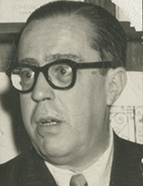

A close reader of Alexandre Herculano’s work, Holanda also attributed the structural impediments to Brazil’s modernisation to the mental legacy of the Inquisition. Echoing António Sérgio’s perspective, he rejected the veneration of old or new pantheons, famously remarking, “ Those who see their past through mirages will build their future on mirages ” (António Sérgio, Ensaios [Essays], IV, 211). Holanda was well-acquainted with the works of the Renascença Portuguesa , many of which were published in Rio de Janeiro by Tipografia Anuário do Brasil. In 1920, this press released the first volume of António Sérgio’s Ensaios , along with other titles from the group.
Holanda drew extensively on António Sérgio’s interpretations of the socioeconomic conditions that hindered the development of manufacturing and agricultural activities in Portugal. In Raízes do Brasil , he directly cites Sérgio’s essay published in the 1920 Rio edition, Ensaio de interpretação não romântica do texto de Azurara [ Essay on a Non-Romantic Interpretation of Azurara’s Text ] , where Sérgio critiques Joaquim Pedro de Oliveira Martins’ exaggerations regarding the conquest of Ceuta. In the same work, Holanda also refers to Sérgio’s preface to Gilberto Freyre’s book, O Mundo que o Português Criou [ The World the Portuguese Created ], ( 1940).
Thus, the Brazilian historian was deeply engaged with key strands of Portuguese historiographical thought, with which he both dialogued and debated, as was his custom. Among the Portuguese authors he most frequently referenced were Gama Barros, Alexandre Herculano, Oliveira Martins, João Lúcio de Azevedo, Damião Peres, Veiga Simões, Duarte Leite, António Baião, Jaime Cortesão, Virgínia Rau, Vitorino Magalhães Godinho, José António Saraiva, Joaquim Barradas de Carvalho, Alberto Iria, and Luiz Ferrand de Almeida. It is no coincidence that the complete works of these historians are part of the special collection at the Rare Books Library of the University of Campinas. Holanda’s critical irreverence extended even to his Modernist comrades, whether from São Paulo or Rio de Janeiro. He found the movement’s efforts to construct a truly Brazilian identity through the rejection of or distancing from the Portuguese legacy to be artificial—particularly resisting Mário de Andrade’s proposal to adopt a new grammar. He wrote: “ If the form of our culture still remains largely Iberian and Lusitanian, this is due primarily to the deficiencies of ‘Americanism,’ which, so far, has largely amounted to an exacerbation of foreign manifestations and decisions imposed from the outside, detached from the land. The American still lacks an inner existence ” ( Raízes do Brasil , 1982, p. 127).
This work is financed by national funds through FCT - Foundation for Science and Technology, I.P, in the scope of the projects UIDB/04311/2020 and UIDP/04311/2020.
